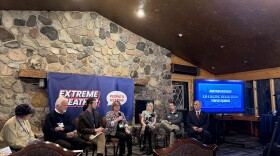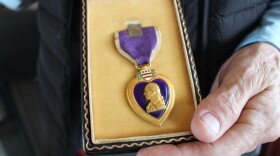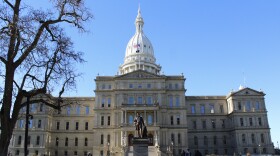The Grand Traverse Band of Ottawa and Chippewa Indians has officially gained ownership of a 187-acre piece of land in Leelanau County.
The deed for the land, which sits on Grand Traverse Bay between Northport and Omena, was transferred to the tribe this week.
It was once the Timber Shores campground and later eyed for a luxury condo development and an RV campground.
But before that, it was the epicenter of Ojibwe and Odawa villages whose descendants later formed the Grand Traverse Band, according to a report on the site’s history.
Now, the Grand Traverse Band regains ownership and stewardship of the site after 150 years with the help of federal grant money and local fundraising.
The land’s new name is Mashkiigaki, which means marsh lands and place of the medicine.
The tribe’s Natural Resources Department will restore the shoreline, wetlands and creek corridor, which are important spawning grounds for native fish species.
In their application for the federal grant, the tribe lays out plans to remove debris from the former campground and marina; restore cobble along the Lake Michigan shoreline for spawning; and revegetate certain areas with native plant species culturally important to the Anishinaabek.
The plan is for the site to become a protected nature preserve, with certain areas accessible for hiking and birdwatching by tribal and non-tribal community members.
Local nonprofits who partnered with the tribe also hope to use a parcel for affordable housing.







